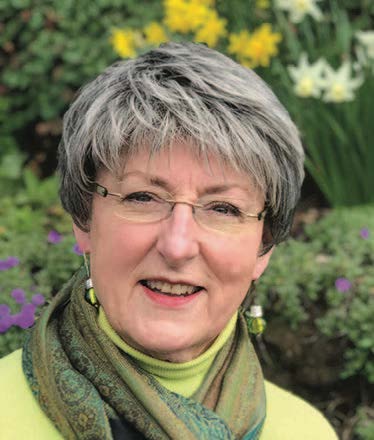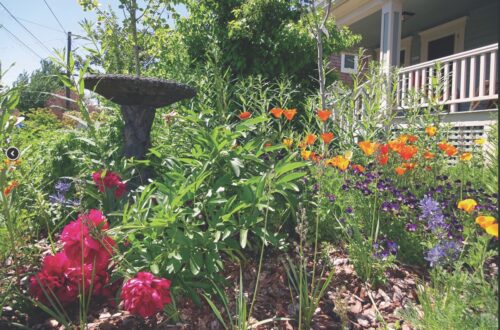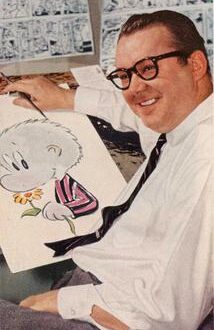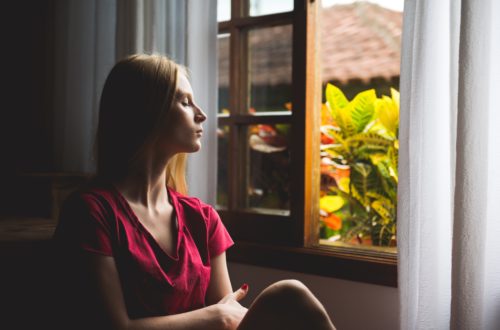When I first went through the Master Recycler class in 1992, I was so excited to learn all about the Three Rs: Reduce, Reuse and Recycle. I wanted to share with everyone how they, too, could recycle more and reduce their waste (and their expenditures), and help the planet. I mean, wouldn’t everyone want to know how to do that?!
Sometimes, it’s hard to know a lot about impacts and not be able to share that knowledge with others. It pains me:
- To see food wasted at all levels of production and consumption, knowing how many people go without, as well as how much water and fuel is also wasted.
- To not pick up litter and take it home, but I don’t want to add it to my own garbage can. However, I do pick up items that I can recycle.
- To see someone with glitter on their face, and not tell them that the glitter washes off and down the drain into OUR water supply, into the rivers and oceans, into aquatic life, and then into us.
- To see shoppers snapping off multiple plastic film bags in the produce department. I wonder if they know that the bags are made of fossil fuels; the more bags, the more pollution.
- To walk through a store packed with poly fleece clothing and home goods, knowing that those products slough microfibers into the water supply when washed, and are made of plastic (fossil fuel).
But I can’t blame people for not knowing these things – who is sharing the information with the general public, and why isn’t it being shared? Just imagine how beneficial it would be for us to know if a product we buy, such as palm oil, is harmful to life on Earth.
I just read about the Terra Carta, a document recently released by Prince Charles. The Terra Carta was presented on January 11, 2021, ahead of the One Planet summit in Paris, and is asking signatories to agree to nearly 100 actions that would make the Earth a cleaner, safer place by 2030. Article 3 addresses providing consumers with more information:
“Article 3 explores the power of consumers and how they control 60% of global GDP, which gives them the ability to transform markets; but they cannot be expected to do this if they don’t understand their options. “They deserve to be told more about product lifecycles, supply chains, and production methods… If all the true costs are taken into account, including the cost to Nature, being socially and environmentally responsible should be the least expensive option because it leaves the smallest footprint behind.”
Sometimes, it is hard to be a “helper”. One wants to help people grasp that by changing their behaviors, they have the power to make positive impacts. At the same time, one doesn’t want to swamp them with information that might overwhelm them and shut them down. It can get complicated; making a conscious choice takes effort and energy as well as information. I’ve learned that when one has more information, one sees and understands that things are so much different than the mainstream paradigm portrays. I know from my experience teaching the Less is More classes that when people do understand that every action has a consequence, most of them want to change one or more behaviors. For example, knowing that using recycled-content toilet paper saves trees, trees that clean our air.
Sometimes, it would be nice to ignore my awareness. A few weeks ago, I was looking at lovely paper holiday napkins, wishing that I could let myself buy them. But I would have felt irresponsible; my concern for the planet outweighs my fleeting desire for pretty disposable napkins. We use cloth napkins instead, though they aren’t as pretty. But they are used over and over rather than just once. That’s why durable, reusable goods are so much less impactful than disposables.
Sometimes, when I talk about our practices, for example telling someone that we keep our heat at 64 degrees in the winter, they have such a look of incomprehension on their face – “Why would you do that?” They do not comprehend why we choose to wear sweaters in order to use less energy.
Sometimes, it’s just plain lonely. When people know that you’re “green”, they often think you will judge them. And they often say “Why bother? What we as individuals do doesn’t matter.”
But then I find moral support such as this from Ecogarantie:
“Have you ever considered the fact that nature was the only thing people have relied on for centuries? Why should it be different now?… We see it everywhere. On the internet, on television, in the street; we should all go green. And quickly. Ice is melting, temperatures are rising, waste is accumulating in the ocean and biodiversity is dying…. Going green is worth it. Not only for the planet but also for your health….Lastly, tell yourself that you are not alone. Nowadays, there are plenty of ways to go green and meet people who can help, support, and advise you. It’s true that one person who stops buying plastic bottles won’t stop climate change. But imagine what the result could be if everyone took the plunge.”
Let me be clear, I would never choose to go back to the days when I didn’t understand that our choices and actions have consequences. I am SO grateful to know that we can make a difference simply by making an effort to educate ourselves. So, while going green isn’t always simple because of the learning involved and the changes one needs to make, being green is the only way for me to be comfortable living now. I want to stress that I/we are not perfect; we are not eco-saints. We do try to make conscious choices, and we are continually striving to learn more and do more. Doing so makes us feel creative and clever. And we know it makes a difference. As Donella Meadows said:
“Living green is not a matter of doctrine; it’s a matter of learning. It’s sweeter, more fun, more creative, way more satisfying than living in a way that impoverishes people and nature. We’ll make mistakes. We’ll live with contradictions along the way. But it’s a way of adventure, not a way of sacrifice.”
For information about the Master Recycler programs: https://bit.ly/3jQ9Se7
Other Resources
TheTerra Carta: https://bit.ly/2NsHO4E
Donella Meadows: https://bit.ly/3dfJTvw
Betty Shelley is a Master Recycler (class #2), a former Metro Recycling Information Specialist, an Agent of Change, and the founder of Reduce Your Waste Project. Betty found Northwest Earth Institute in 1993 when it was founded in Portland. The NWEI discussion courses made her more aware of the choices we make as well as the consequences of those choices. Since 2006, Betty and her husband, Jon, have had just one 35-gallon can of garbage per year. The Shelleys offer the class “Less is More: Getting to One Can of Garbage a Year”. www.reduceyourwasteproject.com







